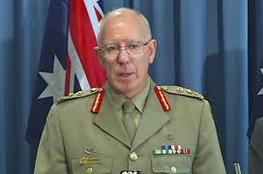I recently heard Jim Whalley (CEO, Nova Aerospace) give a keynote address at an awards ceremony and I was struck by some of his opening lines: “In real estate, it is about location, location, location. In business, it is about culture, culture, culture.”
So what is culture exactly?
Herb Kelleher (Chairman, Southwest Airlines) says that, “Culture is what people do when no one is looking.”
However, Ravasi and Schultz wrote in 2006 that organisational or corporate culture is a set of shared assumptions that guide what happens in organisations by defining appropriate behaviour for various situations (see Ravasi, D., Schultz, M. (2006). Responding to organisational identity threats: Exploring the role of organisational culture. Academy of Management Journal, 49 (3), 433-458).
Professor Kim Cameron in his 2013 book titled, “Practicing Positive Leadership” states that when we speak of culture, we are really talking about the taken-for-granted values, expectations, collective memories, and implicit meanings that define an organisation’s core identity and behaviour. “Culture reflects the prevailing ideology that people carry inside their heads” (Page 20).
The culture provides unwritten and typically unspoken guidelines about what is acceptable and what is not.

General David Hurley
Culture is largely invisible until it is challenged or contradicted.
With that thought in mind, it is fitting to recall the quote from the former General David Hurley, the previous Defense Force Chief in Australia and who is now Governor of New South Wales when he said that “The standard you walk past is the standard that you accept”. Something to think about in relation to culture.
Cameron gives an analogy suggesting that each morning, we do not wake up for example, making a conscious choice to speak our dominant language which in his case is English. We just do it. However, we are not fully aware that we speak a certain language until we meet someone else who does not which calls our attention to what we take for granted. Hence, because culture is undetectable most of the time, it is also difficult to manage or change.

Tony Hsieh
In summary, organisational culture affects the way people and groups interact with each other, with clients, and with stakeholders. In addition, culture may affect how much employees identify with a company or business (see Schrodt, P. (2002). The relationship between organisational identification and organisational culture: Employee perceptions of culture and identification in a retail sales organisation. Communications Studies, 53, 189-202).
According to Tony Hsieh (American internet entrepreneur & CEO of the online shoe & clothing store Zappos.com), “Your company’s culture and your company’s brand are really just two sides of the same coin. Your culture is your brand.”
Incidentally, organisational culture is unique and distinctive for every organisation or company and is one of the hardest things to change.
In essence though, organisational or corporate culture is all about the values and practices shared by the group. It’s about “the way we do things around here.”
